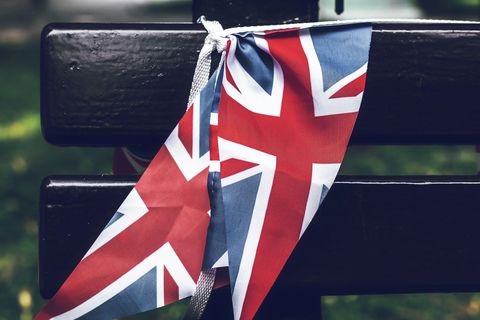The modern English language is considered to be Germanic. It has inherited its core grammar from Old English, as spoken by the Anglo-Saxons and Jutes who arrived in Britain from what is today Denmark and northern Germany. But the majority of the English corpus is derived from Latin and French. By some estimates, a mere 26% of modern English words have Germanic origins.
English has been unusually malleable in its historical development. Of the 15 most-spoken languages in today’s world, English uniquely lacks a prescriptivist regulatory authority. This might help explain why it has so many words of distant origin, neither Romance nor Germanic.
Like many European languages, English is also full of words that originated elsewhere and then arrived via Latin. But here we’ll focus on the words that made it directly into English, without first passing through Latin or any other Germanic or Romance language.
Words from Greek
Pre-modern Greek has had an enormous impact on European languages, overwhelmingly via Latin. In the case of English, relatively few words arrived directly from Greek.
But when the English language started gaining some cultural confidence, British scientists and other coiners of technical terms began joining their peers on the continent in looking to ancient and medieval Greek texts for poetic inspiration, a tradition that continued in other parts of the English-speaking world.
Of course, many of these “Greek” technical words, both in English and other languages, are neologisms. They never existed in any form of Greek until they first appeared in another language.
For example, in 1516 the English statesman and philosopher Sir Thomas More published his book Utopia, originally in Latin but later translated to English. More created the word as a kind of pun, combining the Greek root οὐ (“not”), which to his audience would’ve sounded similar to εὖ (“good”) with τόπος (“place”) – resulting in a word that means “nowhere” or “nonexistent place” but sounds like “good place.”
Another Englishman writing in Latin, the mathematician Isaac Barrow, derives the word “haptice” from the Greek ἁπτικός (“able to touch or grasp”), which is translated into haptics in 1734 by John Kirby. It’s later popularized in German as Haptik and Haptische, only becoming common in English due to its role in psychology, and later in user interface technology (e.g., the technical term for phone vibration is “haptic feedback”).
The word megalith (“large stone”) was coined by Algernon Herbert in 1849, in reference to Stonehenge, and today continues as a mostly archaeological term.
Photograph was introduced to a wide audience by John Herschel in 1839, but the Brazilian inventor Hércules Florence apparently referred to his own process as photographie (in French) in isolation a few years prior, in 1834.
Finally, the term stereophonic was first used by the American firm Western Electric in 1927 to describe the emerging technology of multi-channel sound systems. As the expression became more popular, it was shortened to just stereo.

Traces of the Celtic languages and culture are still prominent today in Ireland – Photo by Kelly
Words from Celtic languages
Before the arrival of the Romans, the tribes of Britain spoke a group of related languages belonging to the Celtic family. These were not so different from those spoken on the continent, but due to Britain’s position at the outer edge of the Roman empire, the Latinization process was somewhat less pronounced.
After this, various Germanic-speaking groups settled in Britain. The Celtic languages that survive today correspond very closely with the lands that never came under Anglo-Saxon or Viking rule.
The modern English language contains many words from both dead and living Celtic languages. Some are even relatively recent additions. Although the vast majority of them are only frequently heard in Scotland, Wales, Ireland, or Cornwall, there are at least a dozen that have become common to most dialects of English.
A banshee is a mythological creature from Irish folklore. In the Irish language it’s written “bean sídhe.”
A bog is an area of wet, mossy ground. It’s called a bogach in Irish and Scottish Gaelic, with the bog component translatable as “soft.”
To bother is to annoy or exert effort. It probably comes from the Irish bodhair, which also means annoy.
A clan is an old Scottish (and arguably Irish) extended family. This ancient socio-political structure persisted in the Scottish Highlands well into the early modern period, and constantly resisted assimilation by the British state. Anthropologists have informally expanded the term to describe similar political groupings based on kinship in other parts of the world.
The origins of the word hog are a matter of fierce debate for etymologists. Its earliest recorded usage is right around the moment when Anglo-Saxon was displacing the native Celtic languages. Even the original definition is disputed, with some saying it referred specifically to a pig reared for slaughter, and others claiming it could be applied to a number of different animals of about 1 year old. Today, we’re more likely to hear it in colloquial usage, indicating greed, dirtiness, or thoroughness.
The word hooligan probably originated in London music halls, as the name of stereotyped comic relief characters based on the common Irish surname Houlihan.
In modern English, a hubbub is a commotion or a chaotic swirl of different noises. Some etymologists think it comes from Irish battle cries like ababú, while others point out its similarity with the Scottish Gaelic jeer ub ub. It’s also possible all of these share a common ancestor.
Penguins probably got their name from Welsh settlers on White Head Island in Canada, where the now-extinct great auk once lived. “White Head” in Welsh is pen gwyn. The term made its way into scientific Latin, and subsequently into many other languages, as a name for that family of birds. Confusingly, the birds now called penguins in English do not belong to this family. Later explorers simply assumed they were related because they looked similar.
The origins of the term “pet“ referring to a domesticated animal companion are disputed. Other senses of the word probably come from French, due to petit (small) and pétulant. But there’s recorded evidence of the meaning “indulged or favourite child” in Northern England and Scotland from as early as 1500, followed by the animal meaning later that century. It seems like the modern usage of the word is influenced by both Celtic and French sources.
Phoney might come from the Irish fáinne (“ring”) via the “fawney rig,” a confidence trick involving dropping a gold-plated brass ring in front of an intended victim, and then convincing them to buy the “gold” ring.
Slew in the sense of “large number” probably comes from Old Irish slúag, meaning “army” or “crowd.” Similarly, slogan is most likely a derivation of slúagh-ghairm, “battle cry.”
Smithereens, as in “tiny pieces,” most likely started as a diminutive variant of the Irish word smiodar (“fragment”).
Trousers come from Scottish Gaelic “triubhas” and Irish “trius,” a woven garment that was typically knee-length and form-fitting, and at least in Scotland often carried a tartan design much like a kilt, but more suitable for the cold winter. Germanic peoples also often covered each leg separately, but called such clothing “hose.”
Last but not least, the world’s favorite fermented grain mash spirit whiskey (or whisky – Irish or Scotch preference, respectively) is an Anglicization of uisce beatha – the water of life. However, there is a Latin influence here, as the term was coined by monks, simply translating aqua vitae, the ancient Roman expression for distilled alcohol. Similar terms exist in numerous other languages.

Let’s admire the spectacular landscapes of Göreme National Park in Cappadocia, Turkey – Photo by Meruyert Gonullu
Words from Persian, Turkish, and Arabic
Throughout the Middle Ages, the Near East was Europe’s main source of science and spices, among other sought-after goods. As the technology of transport advanced and more material could arrive from further east, the names of many objects and ideas from India and China entered Western languages via the names given to them by their Persian, Arabic, or later, Turkish intermediaries.
Of course, English was once again at the far edge of this process, so the overwhelming majority of these words came via French or another Romance language. But there are a few exceptions.
Persian traders who acquired fine translucent earthenware from Far-Eastern sources named these valuable objects for their origin, “chīnī,” which probably had a Sanskrit influence. The Chinese word for the country at the time is Romanized as either Chung-kuo or Zhongguo, meaning “middle kingdom.” In any case, in Latin the initial phoneme softened to an “s,” while Portuguese explorers continued to use “China,” eventually influencing most other European languages to do the same.
Many European languages used the expression “Great Mogul” for the rulers of the Mughal Empire in India, but English was probably the first to start using the term generically to refer to any very powerful person. Mughal itself is a Persian and Arabic transformation of Mongol, as the dynasty claimed lineage from Chinggis Khaan’s empire.
Pyjamas became known to the British through the Hindustani language, but the word originally comes from an Urdu and Farsi term, pāy-jāma, essentially meaning “leg clothing.”
The type of scarf known as a shawl was possibly originally made in a town in India called Chaliyam. In any case, the word came through Urdu, Farsi, or both as shāl and šāl. It’s not clear whether the term entered the English or French lexicon first, but the garment eventually became popular amongst the elite of both countries.
Finally, sofa comes via Turkish (meaning “a comfortable area of the floor covered in carpets and cushions”), originally from the Arabic Ṣuffah, meaning “stone bench.” However, the word appears in French before English, and many etymologists feel it arrived through that route.

India is a multilingual country, and is home to several hundred languages and dialects – Photo by Rahul Pandit
Words from South Asian languages
English received a significant number of words from Hindi, Bengali, other languages, or even directly from Sanskrit, due to the long occupation of India by the East India Company and later the British Empire.
These include bandana (although it may have entered English via Portuguese), which comes from bāndhnū, a Hindi word for a method of tie-dyeing. Today the word is sometimes used in English to describe any large piece of cloth tied around the head.
A bungalow is a house “in the Bengal style,” from the Gujarati baṅglo.
When the word cot entered English, it usually meant a hammock in a ship. In Hindi a khāṭ can be either a hammock, couch, or bedstead.
In Hindi, jaṅgal often implies a wasteland, but can refer to any uncultivated or uninhabited land, including a desert or forest. But in English, jungle has come to refer specifically to dense rainforest, or metaphorically as a place of lawlessness or violence.
Mantra is a Sanskrit term from a root that corresponds with “to think.” In Hindu usage it refers to specific passages of the Vedas that can be uttered as prayer or incantation, but its usage has expanded both in Asia and beyond to mean any incantation or sacred speech repeated to achieve a meditative or magical effect.
Punch – in the sense of the beverage – probably comes from the Hindi or Urdu number five, pā̃c, perhaps because the original recipe contained five ingredients.
A pundit in modern English refers to a person often asked for their opinion by the media. In Sanskrit, however, paṇḍit is a prestigious title generally reserved for scholars, philosophers, and highly skilled musicians.
While shampoo can now be used as a noun, referring to the soap used for shampooing, cā̃pnā is a Hindi and Urdu transitive verb meaning to press, to squeeze, or to knead. The transfer of meaning probably took place via the description of a type of head massage.

The Forbidden City was the political center of China for over 500 years – Photo by zhang kaiyv
Words from other languages
To kowtow in English means “to grovel, submit, or obey.” It doesn’t necessarily have such an implication in Mandarin, where the two characters, kòu and tóu, correspond roughly to “knock head” – to bow so deeply that one’s forehead touches the ground.
Paprika is used in English to refer specifically to the dry powder that can be produced from the capsicum (pepper) fruit, although cayenne pepper and especially spicy (“chilli”) variants are often excluded from this definition. Paprika is in fact the Hungarian word for the fruit itself, a designation retained in many Germanic languages.
Robots acquired their name from a 1920 Czech science-fiction play centered on roboti, a term that originally referred to a form of slavery or serfdom, or colloquially any difficult or unpleasant work.
Finally, Japanese has lent many words to English, most of which have obvious associations with Japanese culture or gastronomy. A few less obvious examples include emoji, futon, honcho, karaoke, and rickshaw.




